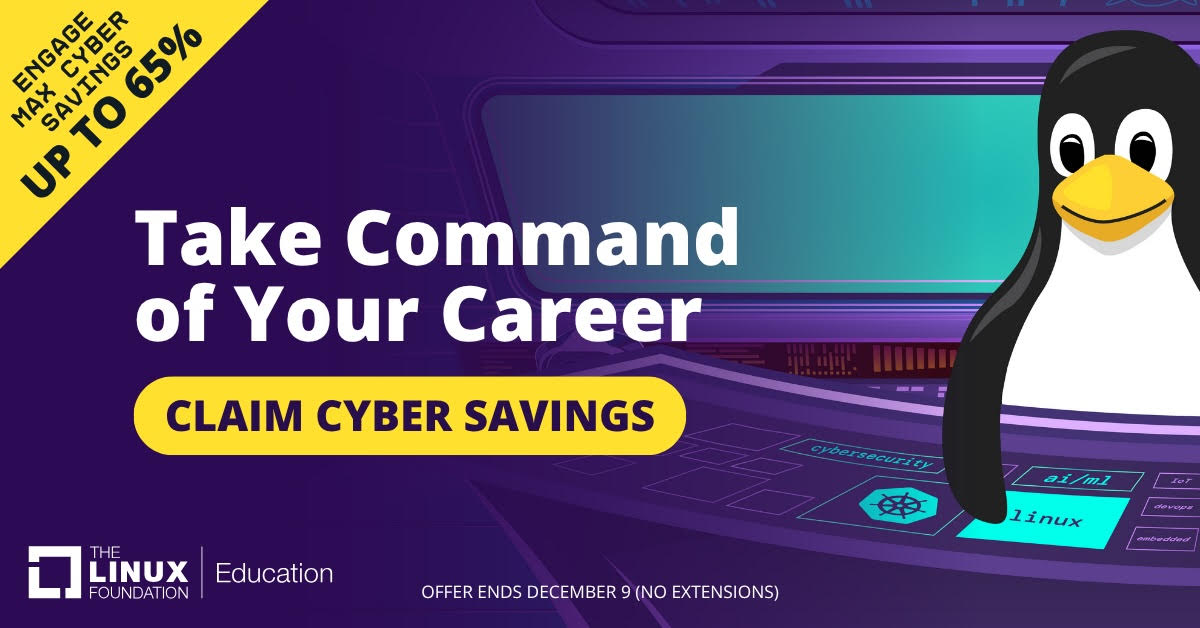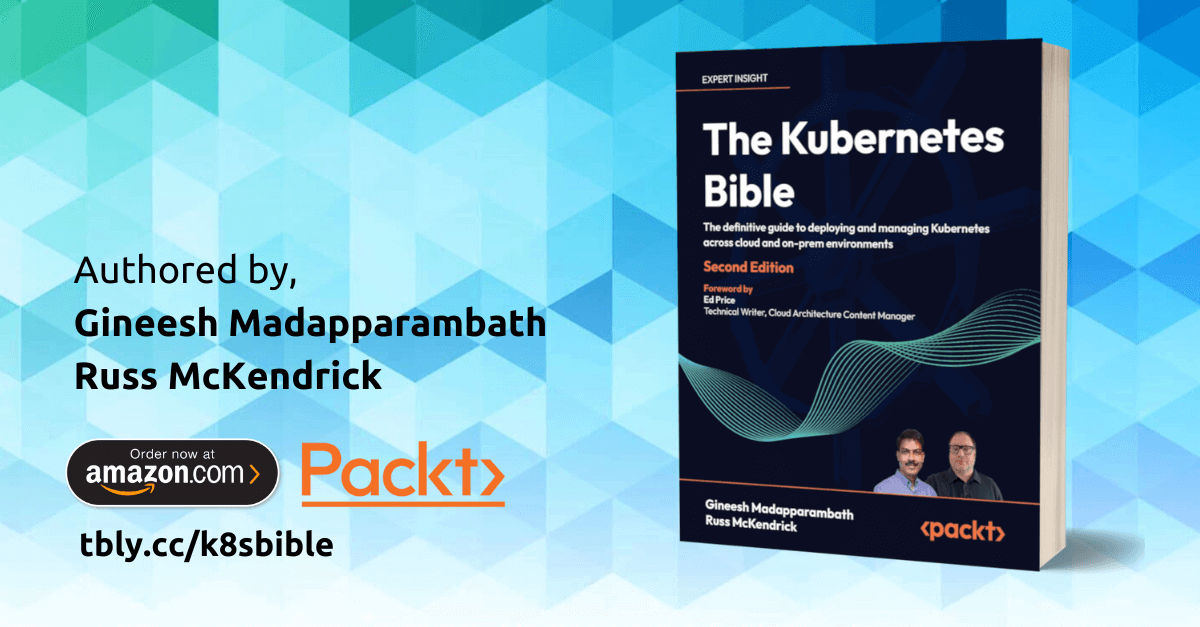Updated - 2025-12
Get up to 65% OFF on CKA, CKAD, CKS, KCSA and KCNA certification exams, courses, bundles or boot camps.
Warning
Offers end 12th Dec
Here’s how to save: Use code CW25 to save up to 65% at the Linux Foundation!
Here’s the deal:
- Choose Your Track for Certification
- Recommended Courses
- CKA/CKS/CKAD Top Resources
- Kubernetes Learning Resources
- Practising Kubernetes
Tip
Choose Your Track for Certification
Selecting the right Kubernetes certification track depends on your goals, existing knowledge, and desired level of expertise. The Cloud Native Computing Foundation (CNCF) offers the Certified Kubernetes Administrator (CKA), Certified Kubernetes Application Developer (CKAD), Certified Kubernetes Security Specialist (CKS), Kubernetes and Cloud Native Associate (KCNA) and Kubernetes and Cloud Security Associate (KCSA) certifications. Here’s how to choose the right track:
Certified Kubernetes Administrator (CKA)
If you’re an infrastructure person like a Linux or Systems Engineer, the Certified Kubernetes Administrator (CKA) track is a great choice. It covers the full Kubernetes architecture and day-to-day operations from start to finish.
- Target Audience: If you’re an operations-focused professional managing Kubernetes clusters—designing, deploying, or maintaining them—this certification is made for you.
- Skills Measured: The CKA exam tests your skills in real-world tasks like deploying apps, configuring storage and networking, managing resources, troubleshooting issues, and securing the cluster.
- Prerequisites: It’s best to have some hands-on experience with Kubernetes in a production setup before going for the CKA exam.
🔥 Use the code CW25 at checkout to get 50% OFF 🔥
Certified Kubernetes Application Developer (CKAD)
If you’re a developer focused on deploying and managing applications rather than managing the Kubernetes infrastructure itself, the Certified Kubernetes Application Developer (CKAD) track is the perfect fit. It covers exactly what you need to design, build, and manage applications within a Kubernetes cluster.
- Who Should Take It: If you’re a developer working with applications on Kubernetes and want to demonstrate your skills in using Kubernetes primitives to design and build applications, CKAD is the right certification for you.
- What You’ll Learn: The CKAD exam tests your ability to create and configure applications, manage pods, services, and deployments, handle application resources, and troubleshoot issues in a Kubernetes environment.
- What You Need Beforehand: It’s recommended to have a basic understanding of Kubernetes concepts and some hands-on experience with the platform before attempting the CKAD exam.
🔥 Use the code CW25 at checkout to get 50% OFF 🔥
Certified Kubernetes Security Specialist (CKS)
If you’re focused on security and manage all security-related operations, the Certified Kubernetes Security Specialist (CKS) exam is the one for you. It will test your skills in areas like security hardening, cluster hardening, vulnerability management, and logging/monitoring.
🔥 Use the code CW25 at checkout to get 50% OFF 🔥
Final thoughts
Since the tracks and topics are closely related, earning multiple certifications (e.g., CKA + CKAD or CKA + CKS) can be a great idea. The effort required for the second certification won’t be much, and it can enhance your credentials. Of course, this is just my opinion—only go for it if you’re interested and willing to invest the time and money.
Kubernetes and Cloud Native Associate (KCNA)
The KCNA exam is designed to validate your foundational knowledge of Kubernetes and cloud-native technologies. While not a mandatory certification, it’s a great option if you want to build a solid understanding of Kubernetes before pursuing more advanced certifications like CKA, CKAD, or CKS.
🔥 Use the code CW25 at checkout to get 50% OFF 🔥
Kubernetes and Cloud Native Security Associate (KCSA)
The [KCSA(https://tbly.cc/kcsa)] exam validates your understanding of the baseline security configurations required for Kubernetes clusters to meet compliance standards. It covers skills like hardening security controls, testing and monitoring security, and participating in assessing security threats and vulnerabilities.
🔥 Use the code CW25 at checkout to get 50% OFF 🔥
Recommended Courses
Certified Kubernetes Administrator (CKA)
- Certified Kubernetes Administrator (CKA) – KodeKloud – by Mumshad Mannambeth
- Certified Kubernetes Administrator (CKA) with Practice Tests – by Mumshad Mannambeth – Udemy
Certified Kubernetes Application Developer (CKAD)
- Certified Kubernetes Application Developer (CKAD) – by Mumshad Mannambeth
- Kubernetes Certified Application Developer (CKAD) with Tests – by Mumshad Mannambeth – Udemy
Certified Kubernetes Security Specialist (CKS)
- Certified Kubernetes Security Specialist (CKS) – by Mumshad Mannambeth
Kubernetes CKS 2021 Complete Course – Theory – Practice – by Kim Wüstkamp – Udemy- Kubernetes CKS Full Course Theory + Practice + Browser Scenarios [FREE] – by Kim Wüstkamp – YouTube
Kubernetes and Cloud Native Associate (KCNA)
- Kubernetes and Cloud-Native Associate (KCNA) – by KodeKloud
- Dive Into Cloud Native – Containers, Kubernetes and the KCNA – by James Spurin / Diveinto
Also, see CKS – Challenges by Kodekloud – This series consists of a set of complex challenges that will assist you in mastering Kubernetes Security concepts and getting ready for the coveted Certified Kubernetes Security Specialist Certification.
Learn Kubernetes from Experts
Just want to learn Kubernetes as a beginner? Check this Kubernetes for the Absolute Beginners (With Hands-on) from KodeKloud.
CKA/CKS/CKAD Top Resources
- 10 Tips for CKA, CKAD, and CKS Exams
- 5 Mistakes You Should Avoid During Kubernetes Exam
- CKA, CKAD, CKS Learning Path
- OpenShift/Kubernetes CLI Cheatsheet
- kubectl cheatsheet
- Open Source Curriculum for CNCF Certification Courses
- CKA & CKAD Exam Tips (Linux Foundation)
- Frequently Asked Questions: CKA and CKAD & CKS (Linux Foundation)
- Candidate Handbook (Linux Foundation)
- Kubernetes Certification Exam Environment Preview (YouTube)
- CKS CKA CKAD Exam Simulator – Killer.sh
- Exam Compatibility Check Tool
Kubernetes Learning Resources
Below are some of the free (most of them) resources to learn Kubernetes from scratch. Some explain Kubernetes concepts in detail, others through practical sessions.
- Kubernetes by Example (Red Hat): Check Learning Kubernetes basics and this article for more details.
- Free Kubernetes Training – by kasten.io
Practising Kubernetes
You will not be able to learn Kubernetes by just reading documentation or watching videos. You need to practice using available labs or your own setups. Here are some lab resources:
- Kubernetes-the-hard-way (GCP)
- Kubernetes-the-hard-way (VirtualBox)
- Kubernetes cluster with Vagrant and Ansible
- Kubernetes cluster with Kubespray
- Installing minikube with Vagrant and Ansible | Video
Practice free Kubernetes Lab from Katacoda – Learn Kubernetes using Interactive Browser-Based Scenarios(Katacoda has ended public service)Kubernetes Playground in Katacoda(Katacoda has ended public service)- Play with Kubernetes – A simple, interactive and fun playground to learn Kubernetes
- Play with Kubernetes Classroom – Free Kubernetes Hands-on Workshops
- Amazon EKS Workshop – Explore VPC, ALB, EC2 Kubernetes workers, and Amazon EKS.
- EKS ANYWHERE – Deploy EKS locally or as a production-quality on-premises platform.

